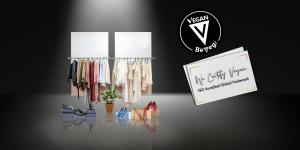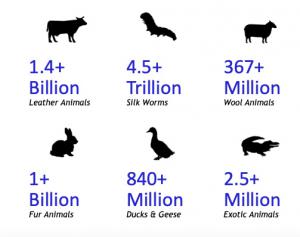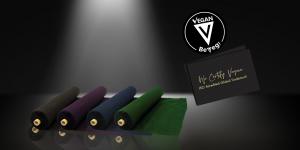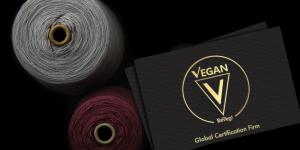CERTIFIED VEGAN FASHION TRENDS --by BeVeg
When it comes to fashion there are multiple manufacturers and suppliers that may compromise vegan integrity. To ensure vegan quality assurance, BeVeg certifies!
Do you get excited when you see a beautiful shoe, bag, sweater, or jacket and just get disappointed when you find out it is made from animals? Do you ever wonder why there are not more vegan certified brands, why the big brands don’t have more vegan options, or why the vegan options are so much more expensive? The answer actually comes down to the availability, cost, and performance of the raw materials used to make those products. You can’t make a vegan leather bag without vegan leather. You can’t make a vegan wool sweater without vegan wool. Sure, there are materials available but they are generally made out of petroleum based products (think synthetic leather) or the companies producing the materials are in their infancy and have low production volume and higher costs.
So what is the solution? More competition and look and ask for the certified vegan logo by BeVeg. The more entrepreneurs, companies, and scientists working on developing these new materials, the more competition and the quicker they will develop better materials at higher scale and lower cost. The more you vote with your dollar for these certified vegan brands, the more you contribute to the shift for a sustainable future through fashion.
You must know of the success of the plant based food industry by now. There has been a significant increase in the number of companies producing tasty, reasonably priced, and convenient replacements for meat, eggs, and dairy products. This rise in options is in part due to the amazing work of The Good Food Institute.
“I established and ran all of GFI’s international programs for two years and my co-founder, Stephanie Downs, was the co-founder of Good Dot, a plant based meat company in India. We both saw first hand how effective GFI’s programs were in growing the plant based food industry so we founded a new organization, the Material Innovation Institute, (MII), to use the same principles in developing animal-free and sustainable alternatives to leather, wool, silk, down, fur, and exotic skins,” says Nicole Rawling, Esq., Executive Director and Co-Founder of the Material Innovation Initiative.
MII’s mission is to accelerate the development of next-generation sustainable materials for the fashion, automotive, and home goods industries with a focus on replacing animal-based materials. BeVeg’s mission is to ensure vegan quality assurance from point of creation to point of purchase.
“Our international network of laboratories and auditors can conduct a series of chemical, mechanical or physical property tests to ensure the vegan quality assurance level of your products, and get them to market as quickly and safely as possible, without cross-contamination,” says Carissa Kranz, Esq., founder and CEO of BeVeg.
“We work to shrink the environmental footprint of existing fibers, such as synthetics and cellulose, and to seed plant-based and lab-grown innovations. We are working to fast forward to the point where animal-free materials are just as affordable, accessible, beautiful and durable as animal-based ones. It’s what consumers want, and it’s what animals and the environment need,” says Rawling.
Do you know how many animals are used annually in the fashion, automotive, and home goods industries? Many people erroneously believe that materials are a byproduct of the food industry but leather makes up around 8% of the profit from the cow which ensures sufficient profits in a low margin industry. For other materials, such as fur, wool, silk, and exotic skins, the animals are primarily used for materials. That is why certified vegan by BeVeg brands are critical.
Not only are these materials bad for animals but they are some of the worst for the environment. A staggering 72% of a brand’s total environmental footprint comes from the raw materials they use, and animal-based materials are among the most damaging. According to the Sustainable Apparel Coalition’s Higg Index, silk is the worst material for the environment, alpaca wool is second, and leather is third. Changing to more sustainable, certified vegan, cruelty-free alternatives would have a major impact for animals and the environment.
The good news is that the industry is primed for change. An encouraging 55% of consumers would prefer purchasing a leather alternative—that’s huge! Major players in the industry are genuinely excited about next-gen, animal-free materials.
“I’ve met with over 40 brands and virtually all of them are excited about using alternative materials,” says Rawling. Meanwhile, brilliant scientists and innovators are out there developing alternative materials like pineapple leather, spider silk made by fermentation, and cellulose fiber wool, to name just a few. “It’s the perfect time to bring everyone together to focus on getting new vegan certified materials to market.”
Manufacturers face many challenges during production, says Kranz. Innovation can be fast-tracked in the following ways:
- Identify and assess innovative materials and technologies
- Spur investments, research, and development to scale select innovations
- Partner with brands, retailers, and suppliers to get sustainable materials to market
- Certify vegan the many brands and the supply chain so the consumer can shop with confidence and the manufacturers are held accountable.
BeVeg provides manufacturers, suppliers, and distributors of consumer goods solutions in all aspects of vegan quality assurance. BeVeg is the world’s leading vegan certification program. The international network of laboratories and auditors can conduct a series of chemical, mechanical or physical property tests to ensure the vegan quality assurance level of products, and get them to market as quickly and safely as possible, without cross-contamination.
Visit materialinnovation.org/ to learn more about innovative solutions and www.beveg.com to apply for vegan certification for textiles, fashion, furniture, and more. The enclosed interview hosted by F.A.K.E (Fashion for the Animal Kingdom and the Environment) interviews Carissa Kranz, founding attorney and CEO of BeVeg international, the leading global vegan certification firm on the importance of vegan certification and vegan fashion trends.
Material Innovation Initiative
Material Innovation Initiative
+1 866-529-1114
email us here
Visit us on social media:
Facebook
Twitter
LinkedIn
F.A.K.E (Fashion for the Animal Kingdom and the Environment) interviews Carissa Kranz
Legal Disclaimer:
EIN Presswire provides this news content "as is" without warranty of any kind. We do not accept any responsibility or liability for the accuracy, content, images, videos, licenses, completeness, legality, or reliability of the information contained in this article. If you have any complaints or copyright issues related to this article, kindly contact the author above.




